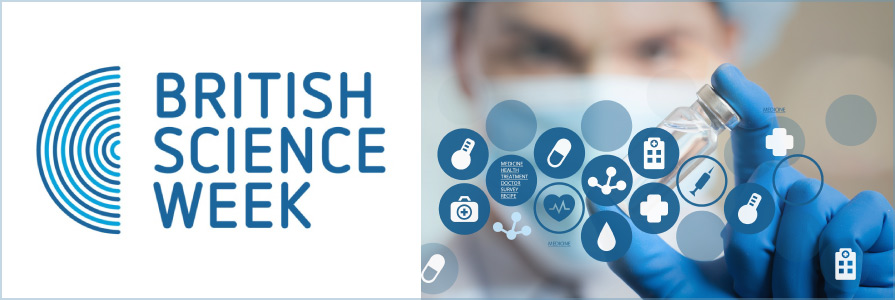
British Science Week
Register with us
Register with us to view a personalised homepage and to receive emails relating to your interests.
Register hereNews – New figures show growth for STEM subjects
News – SFC funding primes crucial RSE research
Blog – Ensuring an innovative future

8 – 12 March 2021
Over the past year scientists at universities and research institutes across the world have focused their expertise and their talent on supporting us through the COVID-19 pandemic.
Building on Scotland’s extraordinary contribution to medical discovery, scientists at Scottish universities have been playing a crucial role in combatting the virus and shaping decisions in public.
Each day during British Science Week 2021, the Scottish Funding Council will be celebrating a different aspect of Scotland’s scientific response to the coronavirus pandemic.
Friday
Understanding Covid-19 transmission in India
The final story in our celebration of Scotland’s scientific response to the coronavirus pandemic comes from Vadu in the Indian state of Maharashtra.
The KEM Hospital and Research Centre in Vadu is undertaking a study to monitor the trend of COVID-19 transmission in rural western India. Funding for the study comes from India’s Translational Health Science and Technology Institute and RESPIRE, a research unit at the University of Edinburgh focusing on respiratory health in Asia.
With a sample size of around 11,000 people, the aim of the study is to help medical authorities in India understand the extent of transmission in different age groups and the rate at which new cases occur.
Survey and laboratory tests from the study will inform people about the precautionary measures to be taken to save their family members, colleagues and friends from getting infected.
This article from The Indian Express provides a layperson’s description of the project.
A more technical introduction to the work is given on the University of Edinburgh website.
Thursday
How data science helped save lives in Grampian
October 2020 was a pivotal moment in our experience of the pandemic. As elsewhere in the UK, figures in Grampian were beginning to show that concerns of a second wave were becoming a reality.
That was the point at which a small group of leading figures from the University of Aberdeen and NHS Grampian came together to reflect on how they had earlier analysed emerging COVID-19 data and helped to define Grampian’s local response to the global pandemic.
The podcast they produced is a fascinating insight into how data science makes the uncertainty of public health more certain – whether through decades-long analysis of interventions into conditions such as obesity or at times when the world literally changes on the screen in front of your eyes.
It’s an engaging conversation which, as well as the science, touches on personal experiences and the value of professional trust. The discussion also highlights the importance of scientific collaboration, showing how the group’s response brought together different perspectives from clinicians to biomedical engineering.
Listen to the podcast or read the transcript.
Wednesday
Modelling the transmission of infectious diseases inside hospital bays: implications for COVID-19
In November 2020 a University of Dundee team identified the most appropriate placement of patients in hospitals to reduce the risk of spread of COVID-19 infections.
In the study, the researchers focused on the transmission of COVID-19 in patients admitted to hospital who were not thought to have COVID-19 and therefore did not meet the criteria for testing.
They looked at the probability that an infectious disease would spread among patients in single rooms, and in shared hospital bays with four or six beds, which are commonly used to accommodate various non-COVID-19 patients in many hospitals across the UK.
Tuesday
Study into Impact of social distancing on older adults
In May 2020 the University of Stirling started a study looking into the impact of the COVID-19 pandemic on social contact, loneliness, wellbeing and physical activity in older adults.
The project was funded by the Scottish Government’s Rapid Research in COVID-19 programme to provide a crucial understanding of the negative impacts of social distancing in over 70s and explore strategies that could enhance social engagement and physical activity during the crisis.
By November 2020 the research had identified a link between increases in loneliness in over 60s and the worsening of wellbeing and health. Increasing loneliness due to social distancing was associated with a smaller social network, lower perceived social support and a decrease in wellbeing, the study found.
Monday
Glasgow Centre for Virus Research
As a national centre of virology research, the MRC-University of Glasgow Centre for Virus Research (CVR) has a crucial role in combatting the coronavirus outbreak.
Its scientists are working on many vital COVID-19 related research projects, including vaccines, testing, treatment, virus behaviour, health complications and the wider effects of the pandemic on society.
Researchers and clinicians in Glasgow are also leading an international, multi-site study to measure prevalence and risk factors of long-term health and psychosocial consequences of the disease.

SFC Strategic Plan 2022-27
Building a connected, agile, sustainable tertiary education and research system for Scotland.